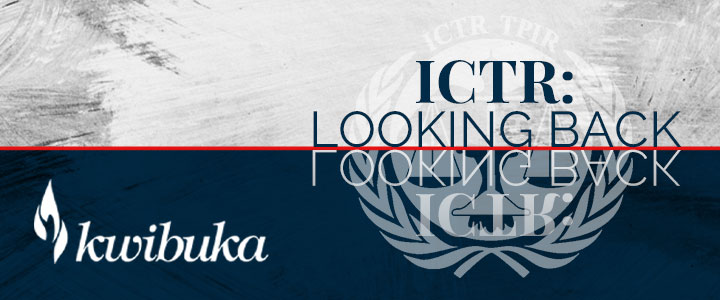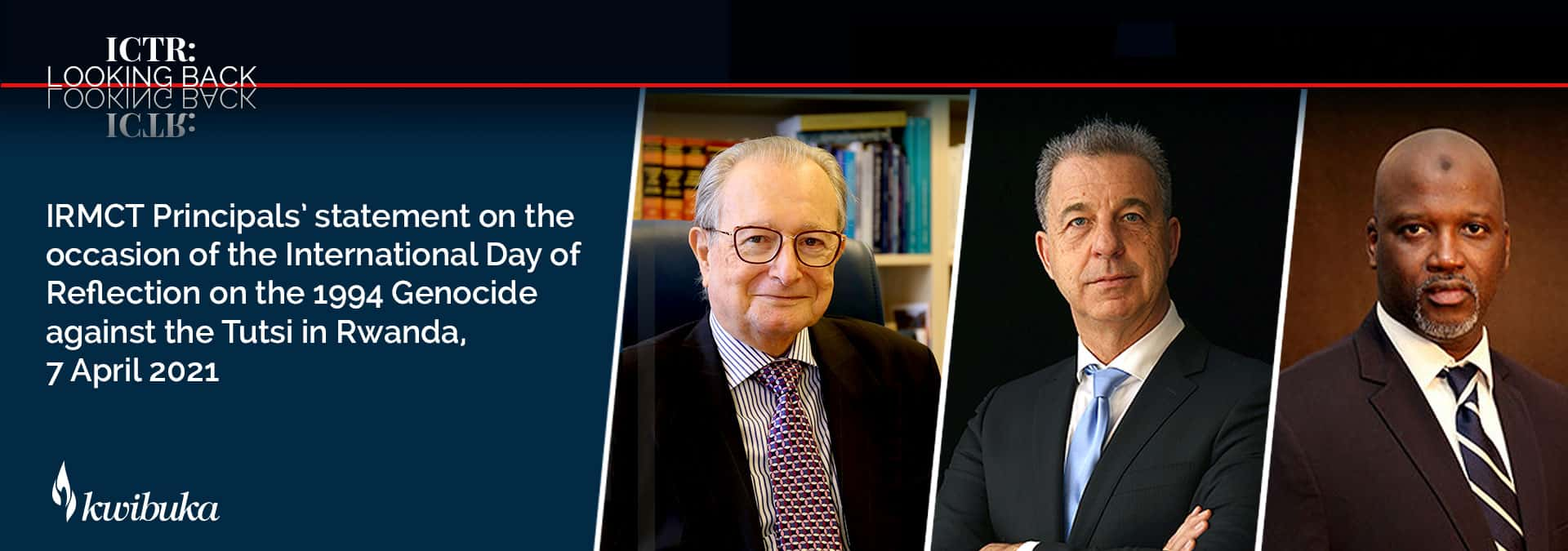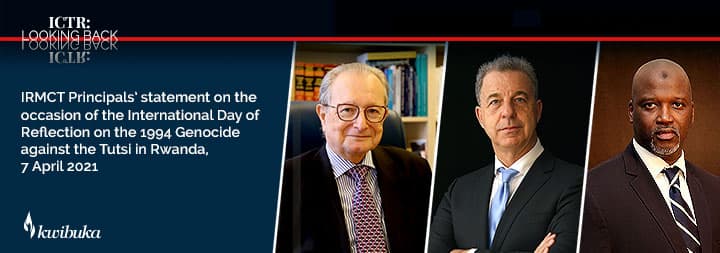Reflection on the 1994 Genocide against the Tutsi in Rwanda
Reflection on the 1994 Genocide against the Tutsi in Rwanda
Each spring, we commemorate Kwibuka (“to remember” in the Kinyarwanda language) in honour of those who lost their lives during the 1994 genocide against the Tutsi in Rwanda and to acknowledge the survivors who mourn them to this day. As well as being an occasion for remembering the victims, every Kwibuka commemoration serves as a continued warning to humanity to ensure that the atrocities committed are not forgotten, or repeated.
This year, we present a digital exhibition reflecting on the work and achievements of the International Criminal Tribunal for Rwanda (ICTR). Entitled “ICTR: Looking Back”, the exhibition guides the viewer through various milestones in the Tribunal’s history, documenting its journey towards delivering justice for the people of Rwanda.
IRMCT Principals’ statement on the occasion of the International Day of Reflection on the 1994 Genocide against the Tutsi in Rwanda, 7 April 2021
On this International Day of Reflection on the 1994 Genocide against the Tutsi in Rwanda, the International Residual Mechanism for Criminal Tribunals (IRMCT), its Judges and staff join the Rwandan people to remember the over 800,000 men, women and children who were murdered in just 100 days. Together, we reflect on the dangers of discrimination, hate and genocide ideology. And together, we renew our commitment to peace, reconciliation and the prevention of genocide.
The survivors and families of the victims must also be at the center of our attention. For them, the genocide is not the past, but ever present, from the trauma they still suffer, to the loved ones who will never return but will never be forgotten. Read more...
As we know, to truly commemorate the victims and survivors, our thoughts on
this day must be reflected in action every day.
At the IRMCT, we continue the fight for justice and to hold accountable those
responsible for the 1994 Genocide against the Tutsi in Rwanda. We took an
important step forward in our work with the arrest of Félicien Kabuga in May
2020, after more than twenty-two years as a fugitive. His trial by independent
and impartial judges is among our most important responsibilities. At the same
time, we also continue to support national judiciaries in Rwanda and around
the world who remain committed to bringing alleged génocidaires to
justice.
All of us also share an obligation to promote the truth about the genocide and
stand against genocide denial. In every classroom, young people must be
educated about the consequences of discrimination and hate, and taught to be
vigilant against genocide ideology. In every part of the public sphere, we
must reject genocide denial and all attempts to erase the victims and their
suffering. Today, as much as ever before, we must speak with one voice to
defend the truth and ensure that genocide denial does not take root in hearts
and minds.
We mark this day to remind ourselves of the tremendous suffering of so many
innocent civilians, and the world’s failure to prevent it. But equally, we
join together to rededicate ourselves to building a better future globally
through reconciliation, justice and respect for human rights. On behalf of the
IRMCT, we express our heartfelt support to the people of Rwanda, and reaffirm
our pledge to honor the memory of the victims by securing justice on their
behalf.
Timeline
-
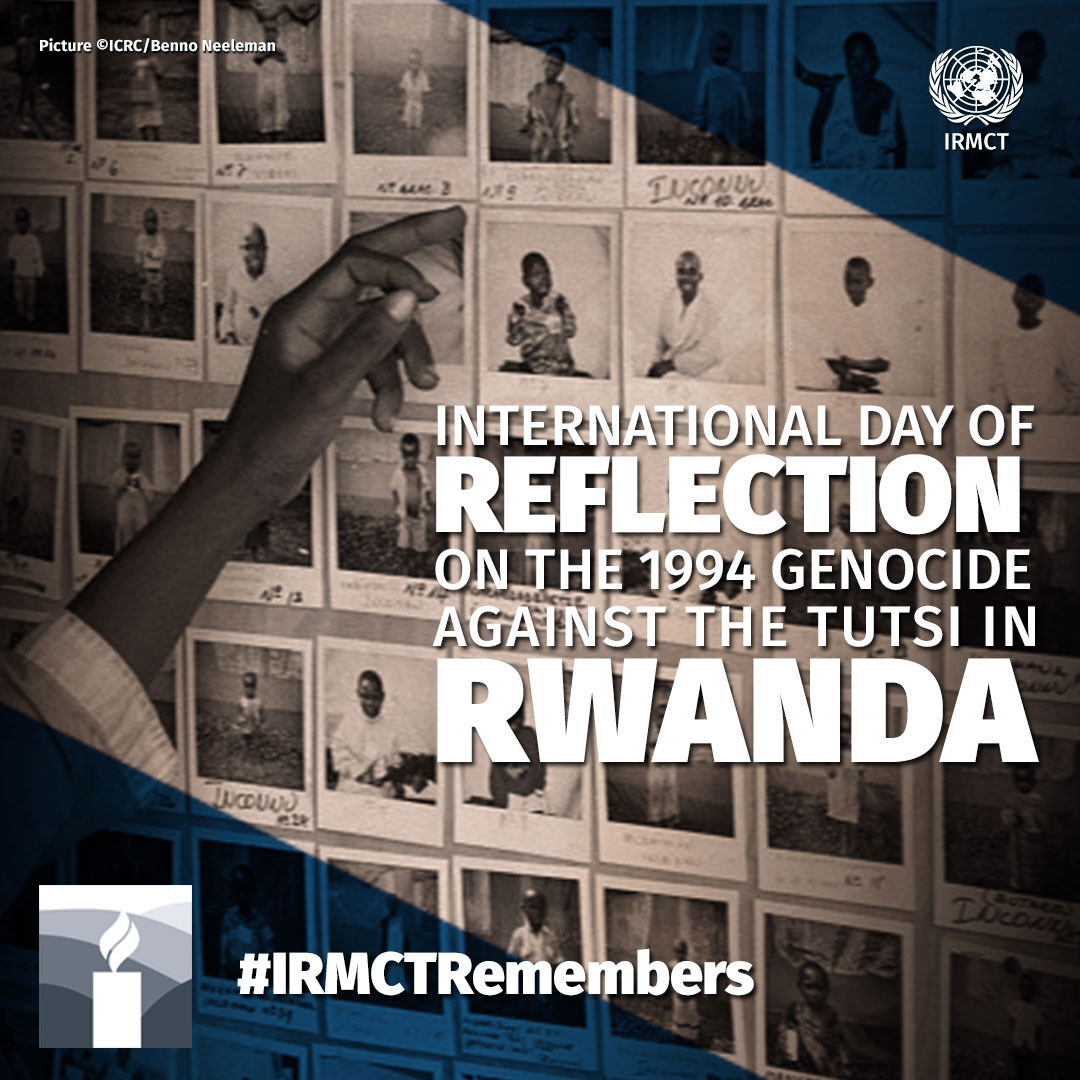
#IRMCT_Remembers 7 April 1994:
On this Day of Reflection, we remember that over 800,000 Tutsi were massacred by Hutu extremists during 100 bloody days in 1994. We observe this Day to recommit our fight against genocide and to remember the victims and survivors.
#IRMCTRemembers #Kwibuka26 #RwandaGenocide -
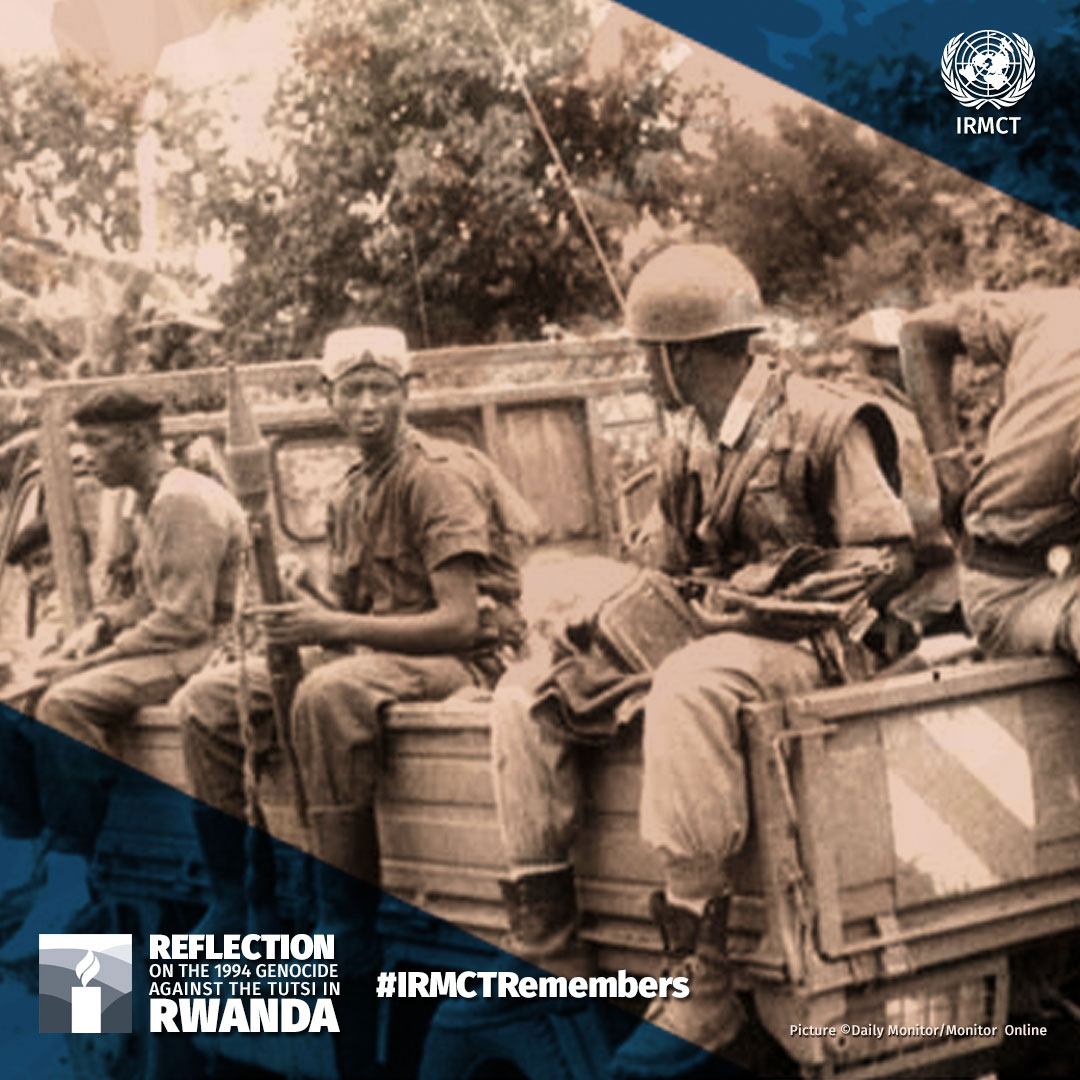
#IRMCT_Remembers 8 April 1994:
The Tutsi Rwandese Patriotic Front (RPF) launched its first major offensive, a significant event in the Commemoration of the #RwandaGenocide
#Kwibuka26 -
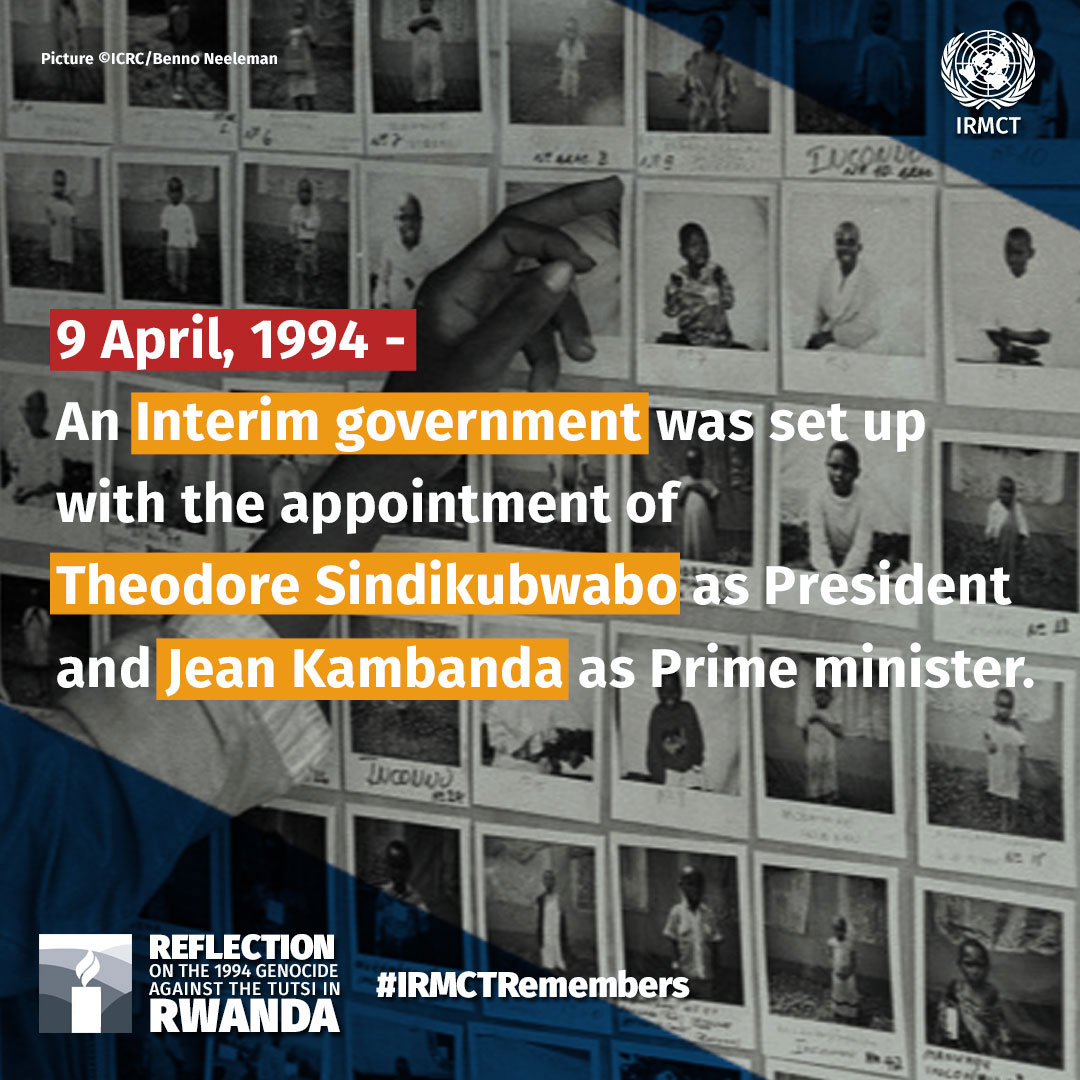
#IRMCT_Remembers 9 April 1994:
An Interim government was set up during the #RwandaGenocide with the appointment of Theodore Sindikubwabo as President and Jean Kambanda as Prime Minister.
#Kwibuka26 -
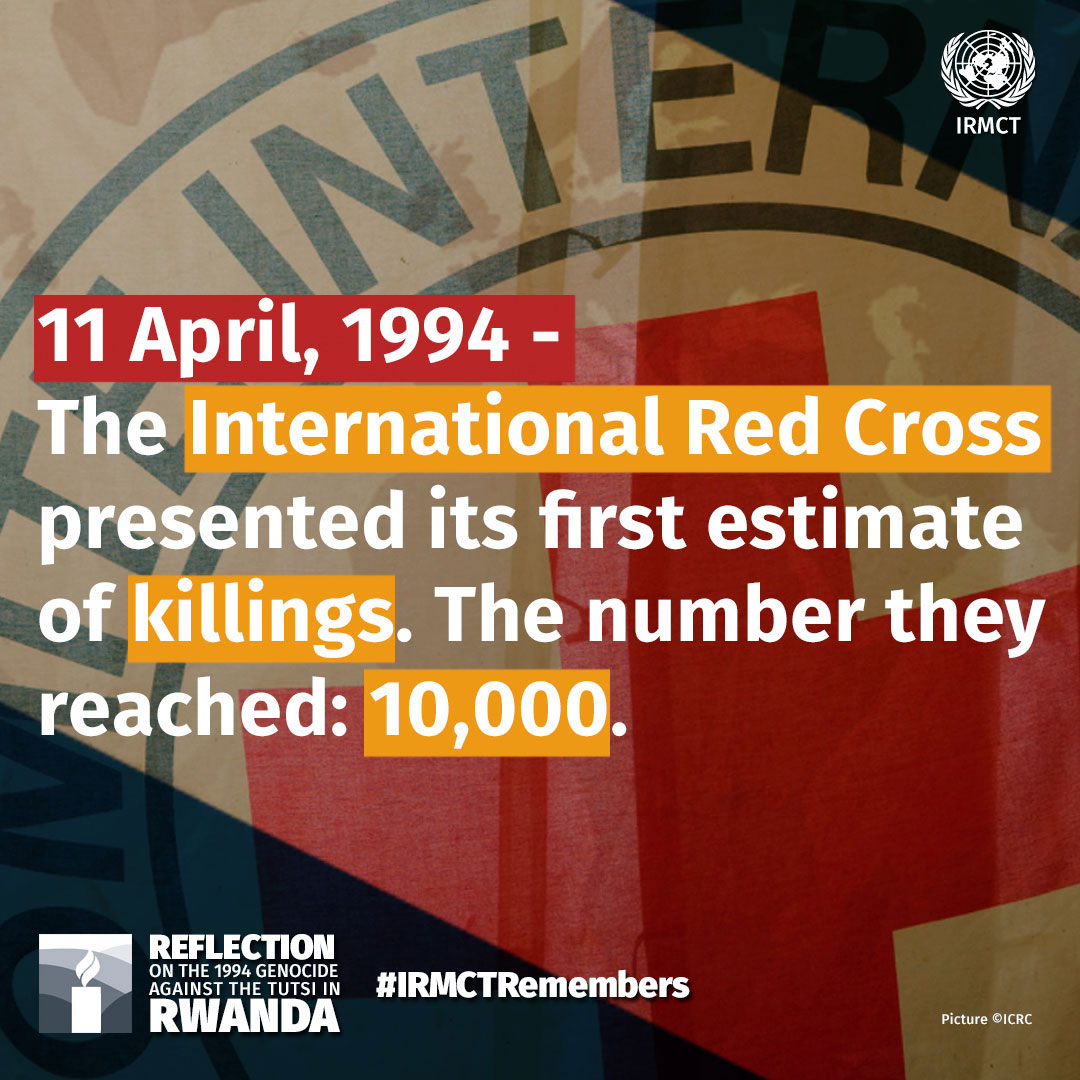
#IRMCT_Remembers 11 April 1994 :
On this day in 1994 the International Red Cross presented its first estimate of killings. They concluded that 10,000 people had been killed.
#IRMCTRemembers #RwandaGenocide #Kwibuka26 -
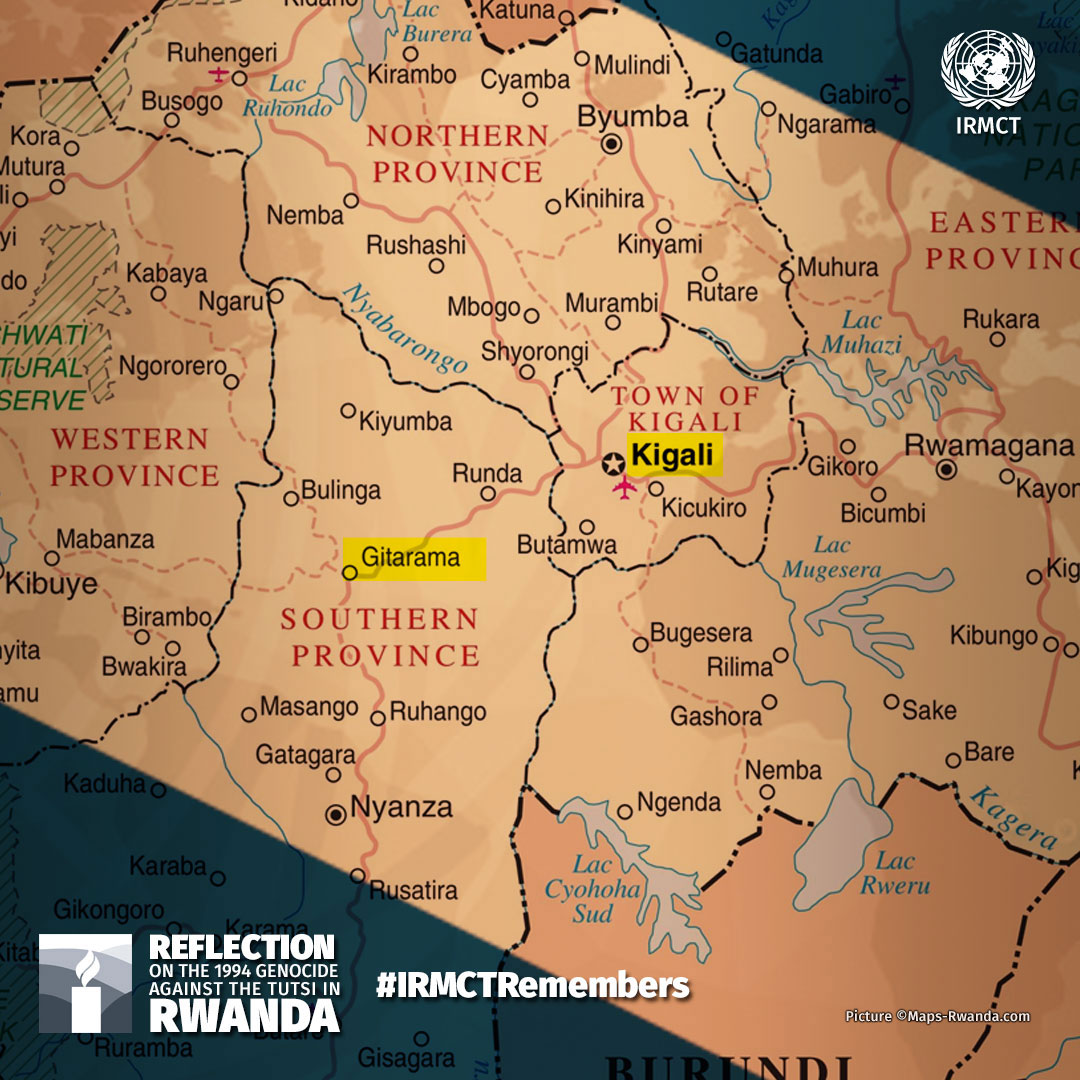
#IRMCT_Remembers 12 April 1994:
26 years ago today, the Interim government fled Kigali and moved its headquarters to Murambi in Gitarama Prefecture.
#RwandaGenocide #Kwibuka26 -
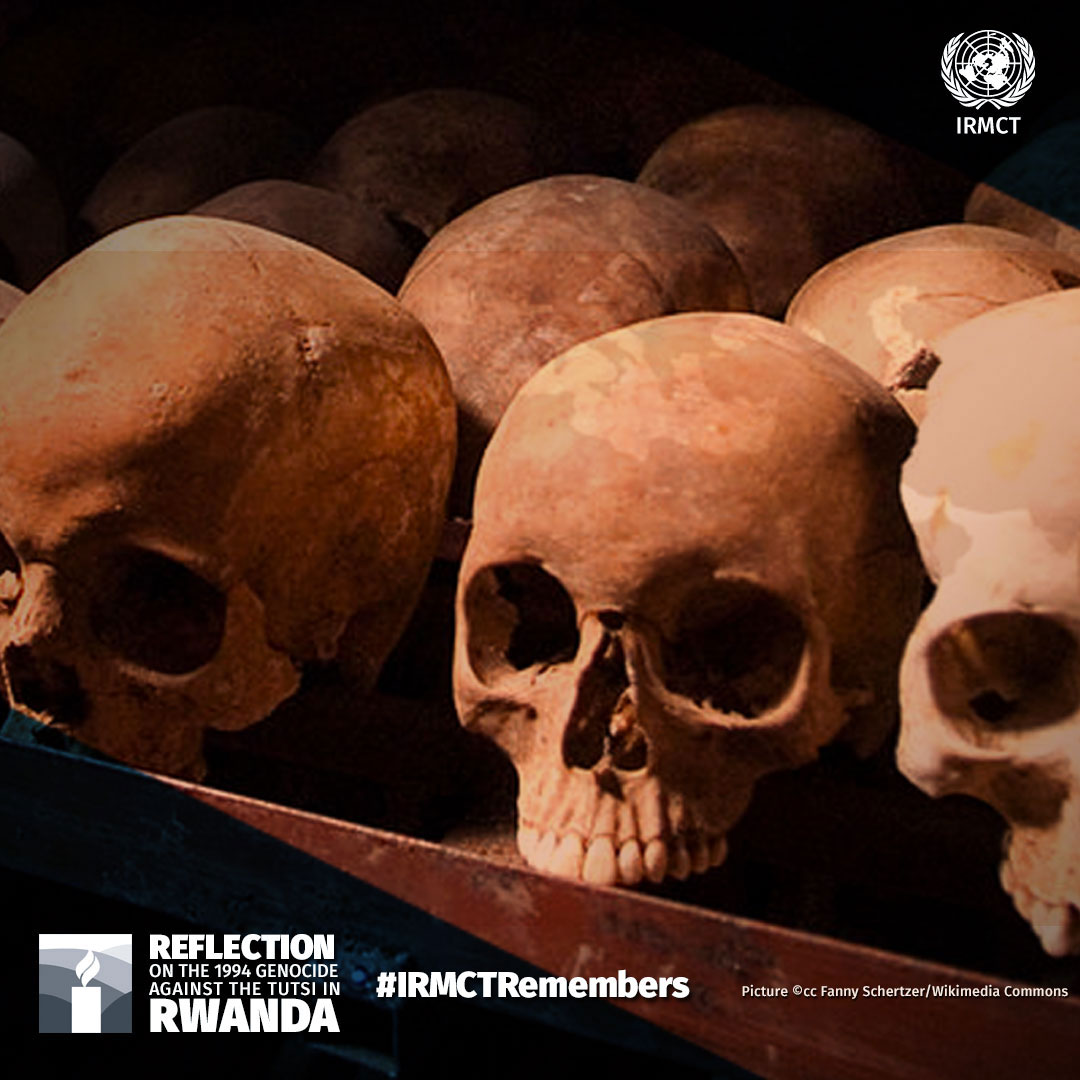
#IRMCT_Remembers 14 April 1994:
Mass killings occurred in Kibeho (Gikongoro).
Several witnesses before the ICTR testified on the burning down of the Kibeho Church between 13 and 14 April 1994.
#RwandaGenocide #Kwibuka26 -
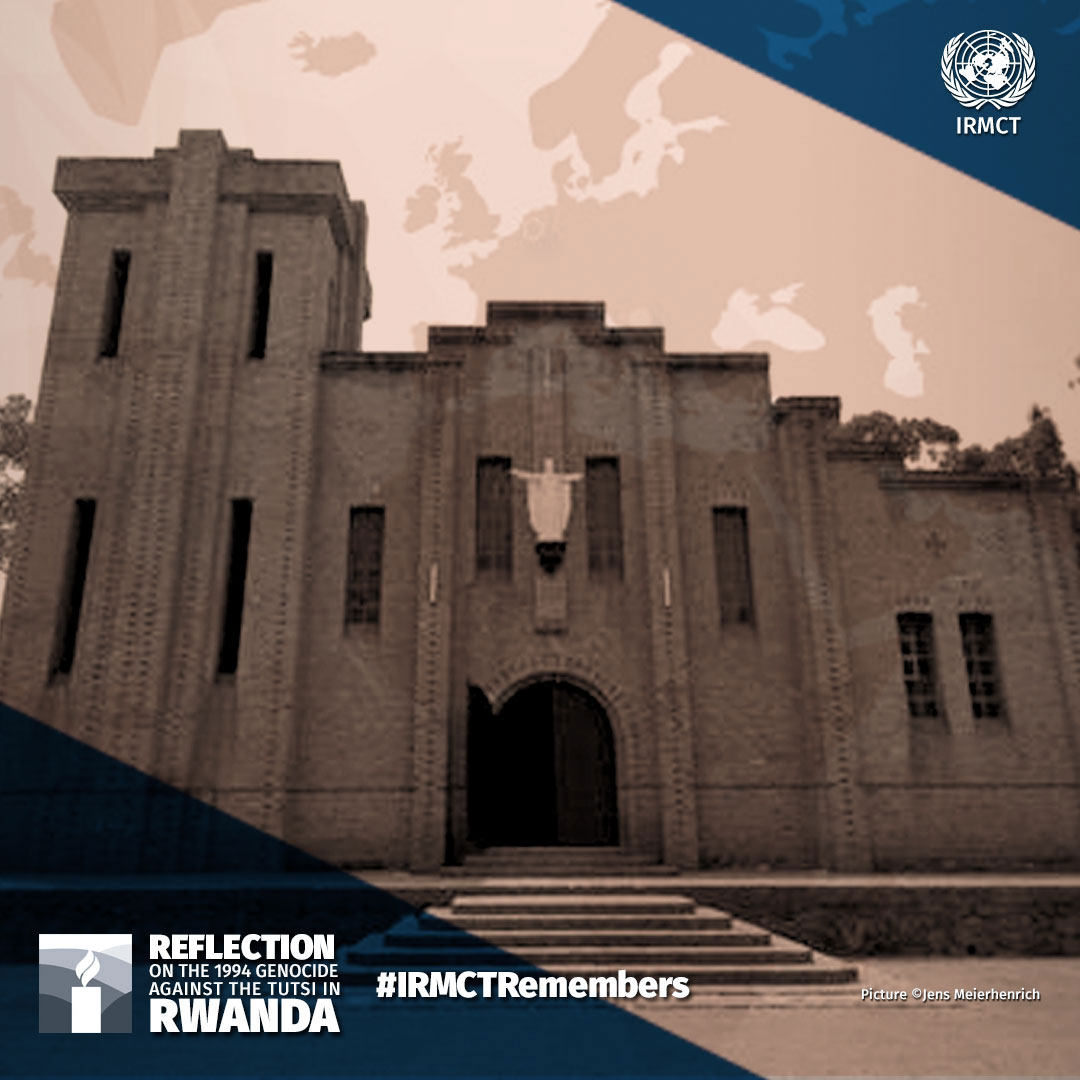
#IRMCT_Remembers 15 April 1994:
The massacre in Nyarubuye Roman Catholic Church. The ICTR Trial Chamber III found “that attackers attacked the refugees at the parish with grenades, guns and machetes up to about 7 p.m., killing, wounding and mutilating a number of them”.
#RwandaGenocide #Kwibuka26 -
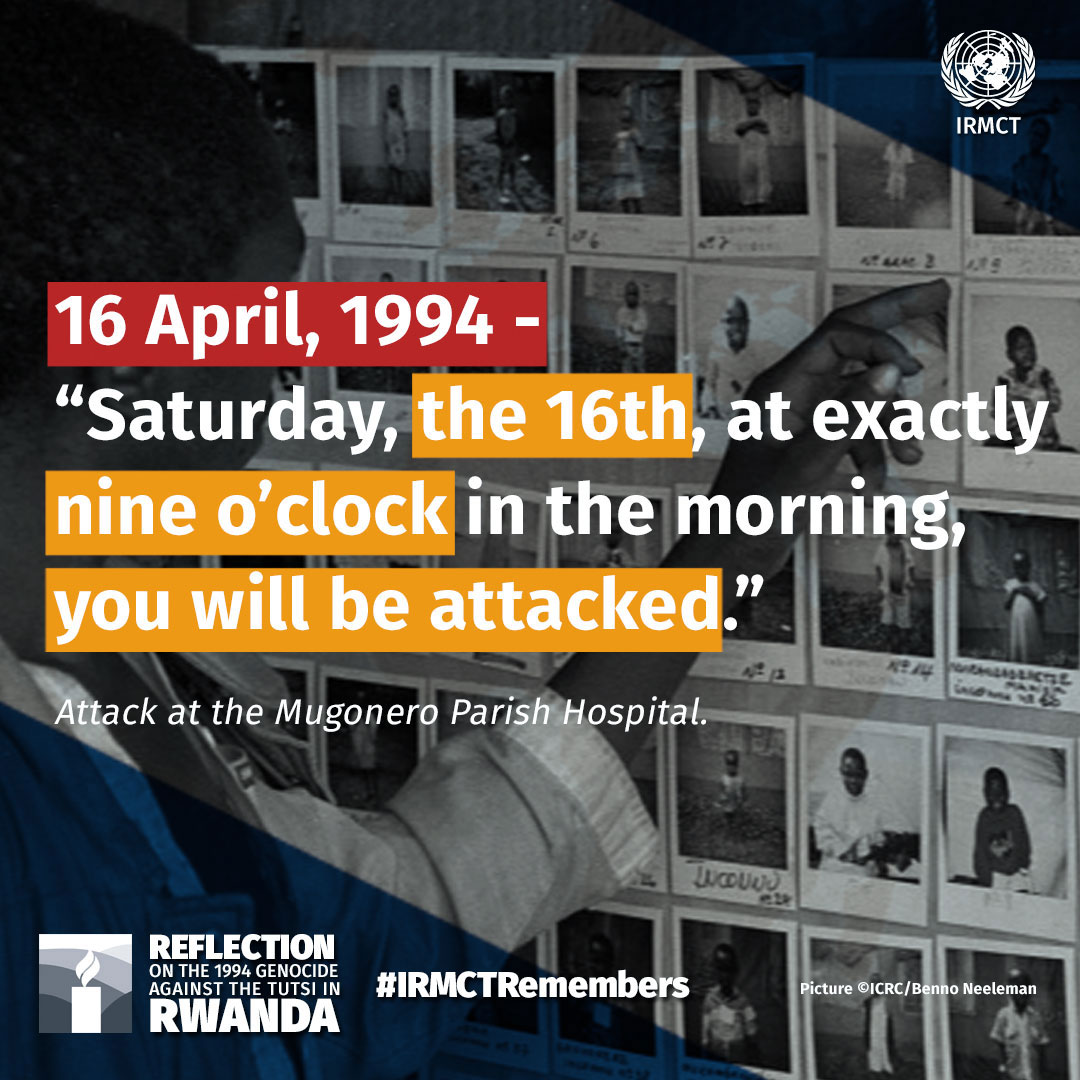
#IRMCT_Remembers 16 April 1994:
The attack at the Mugonero Hospital of 16 April 1994. In several trials, the ICTR established facts about the crimes committed in this hospital by some of the persons accused before the Tribunal.
#RwandaGenocide #Kwibuka26 -
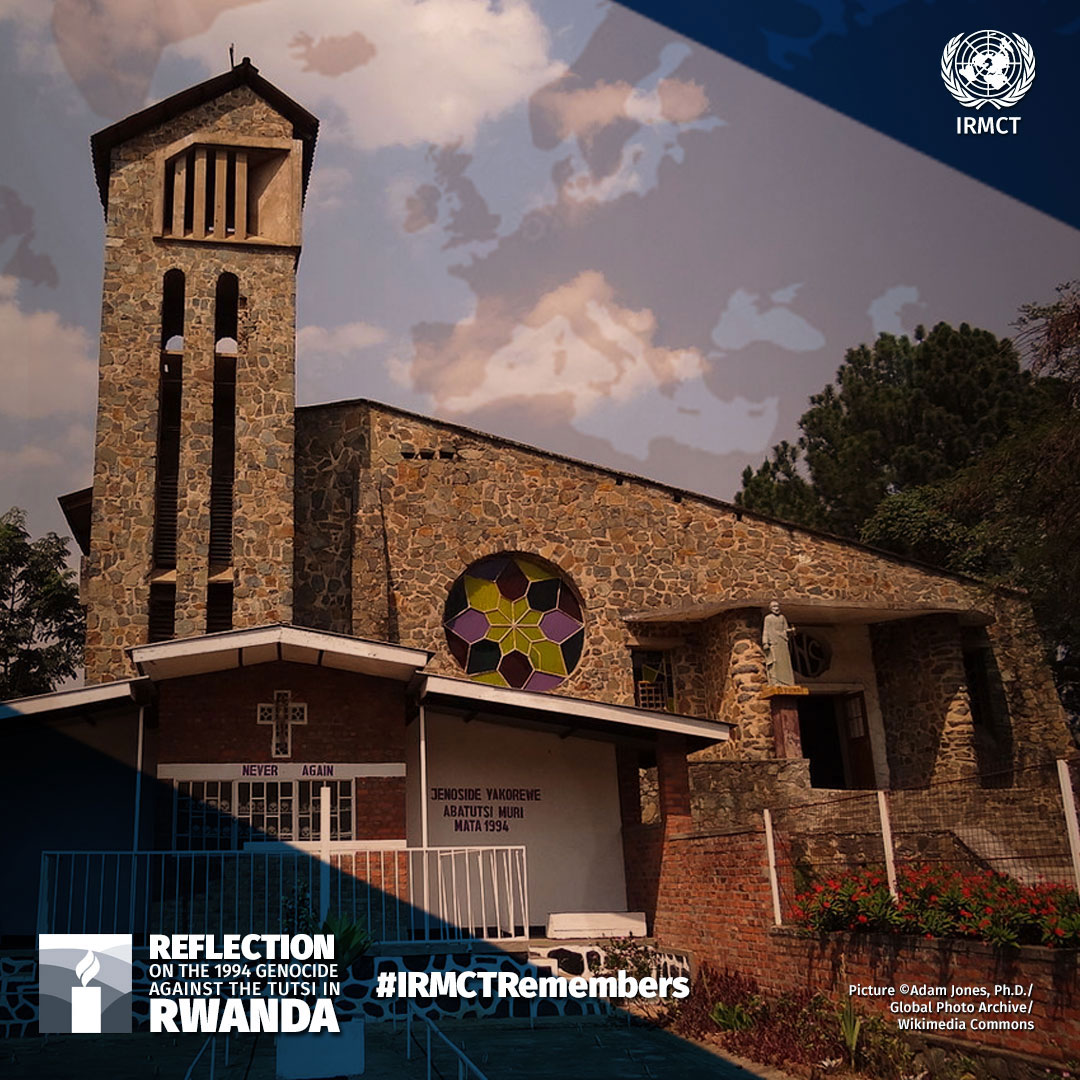
#IRMCT_Remembers 17 April 1994:
The 17 April 1994 Kibuye Church Massacre and the victims. Medical witnesses testified having examined 122 cadavers near the Catholic Church and Home St. Jean Complex in Kibuye.
#RwandaGenocide #Kwibuka26 -
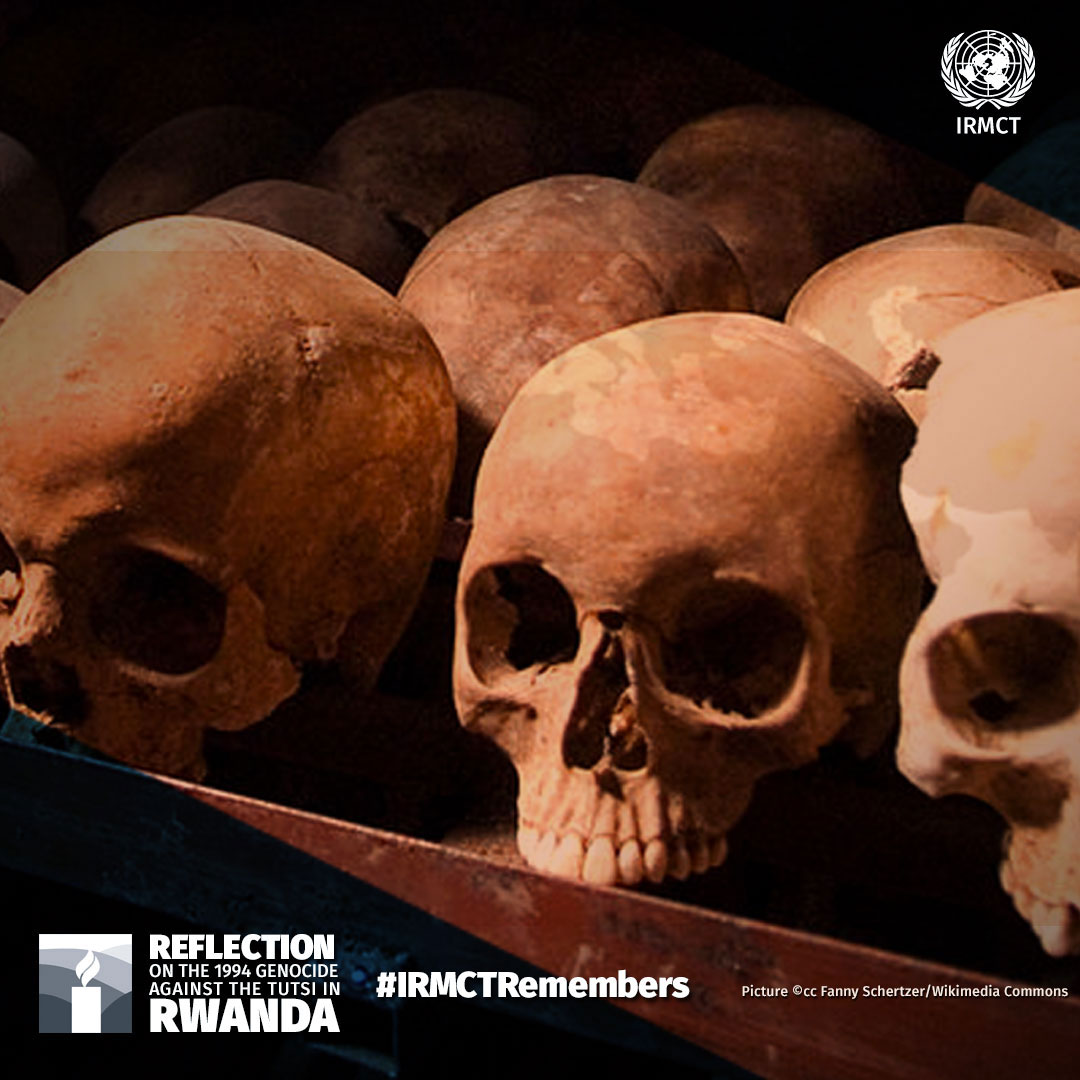
#IRMCT_Remembers 18 April 1994:
IRMCT remembers the Kibuye Stadium Massacre of 18 April 1994 as Trial Chamber II found “the evidence indicates that the attackers’ tear gas, guns and grenades were used on 18 April and that the massacre continued on 19 April”.
#RwandaGenocide #Kwibuka26 -
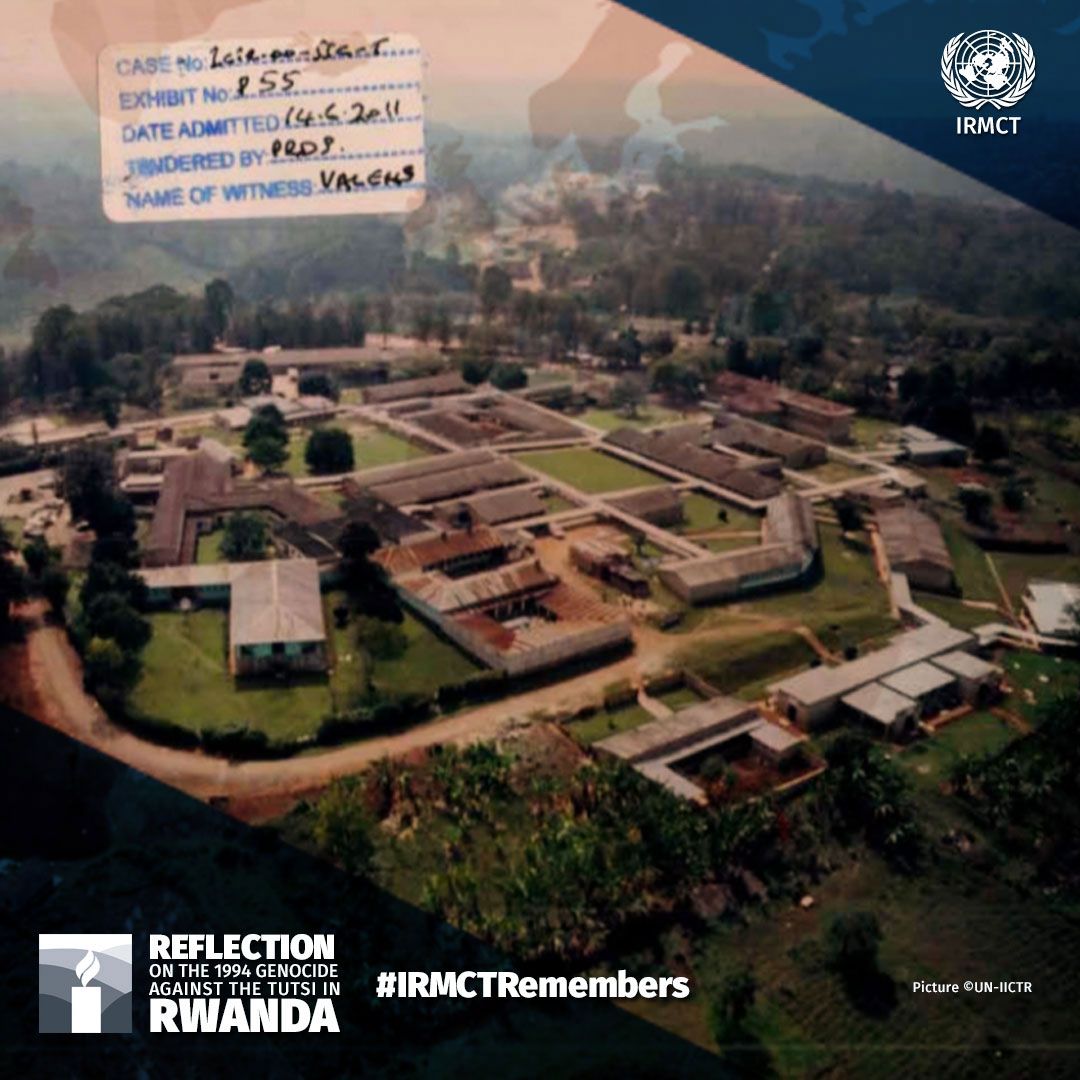
#IRMCT_Remembers 20 April 1994:
IRMCT remembers the Butare University Hospital massacre as the ICTR received witness testimonies about the abduction and killing of 20 to 30 Tutsi refugees in the hospital, around the 20th of April 1994.
#RwandaGenocide #Kwibuka26 -
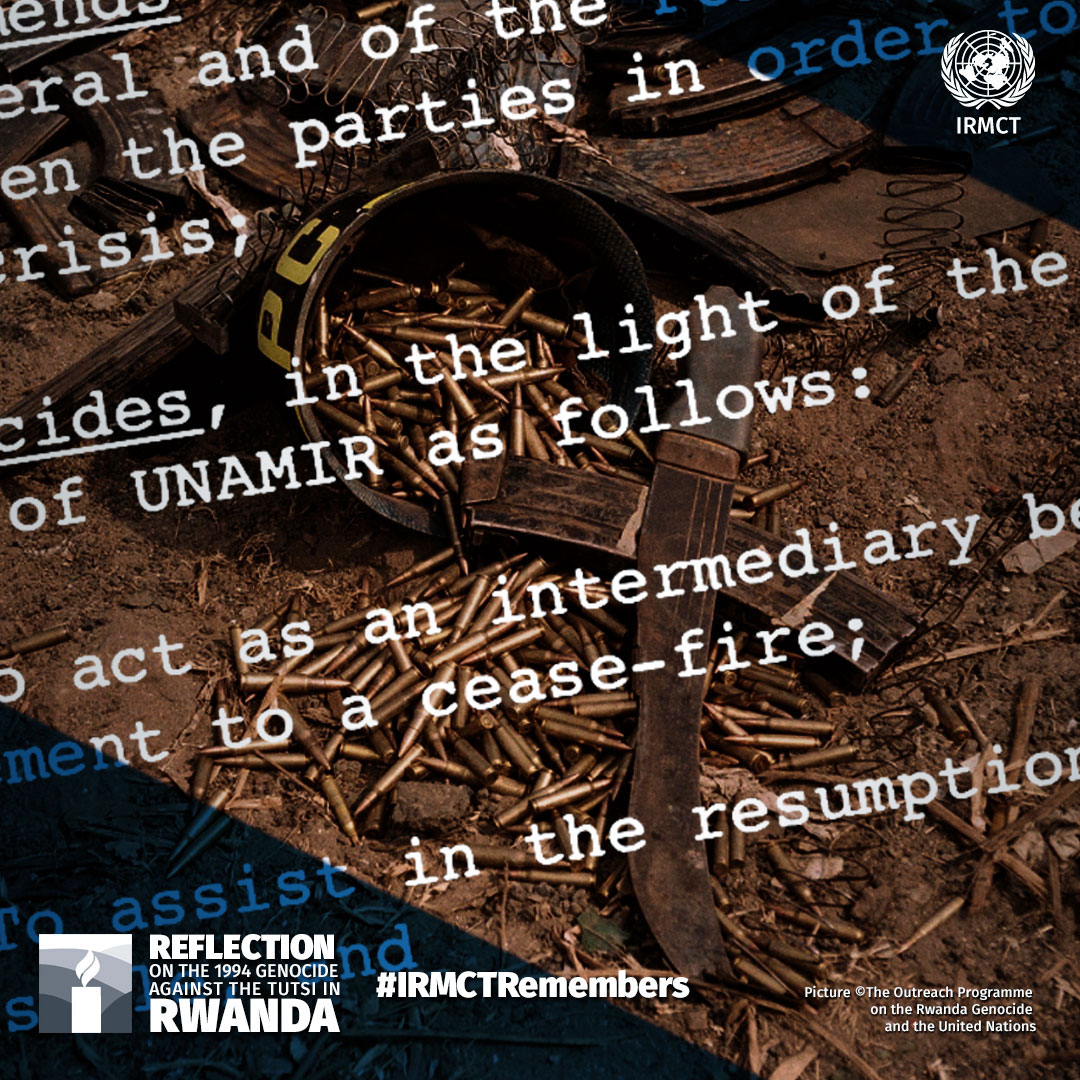
#IRMCT_Remembers 21 April 1994:
The United Nations Security Council adopted Resolution 912 demanding the cessation of hostilities between the forces of the Interim government and the Rwandese Patriotic Front. http://unscr.com/en/resolutions/912
#RwandaGenocide #Kwibuka26 -
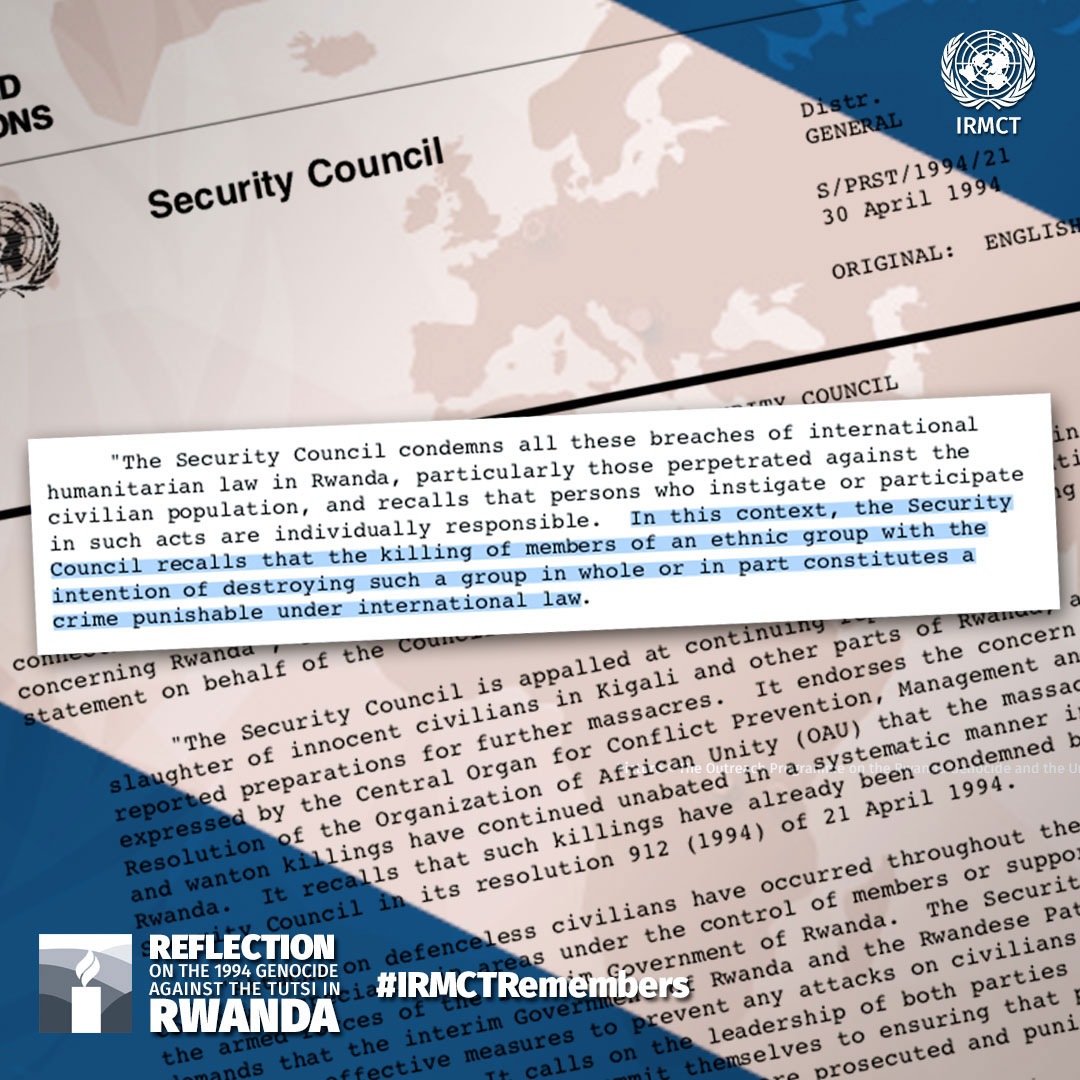
#IRMCT_Remembers 30 April 1994:
1994 UNSC President recalls “killing of members of an ethnic group with the intention of destroying such a group in whole or in part constitutes a crime punishable under international law”.
#RwandaGenocide #Kwibuka26 -
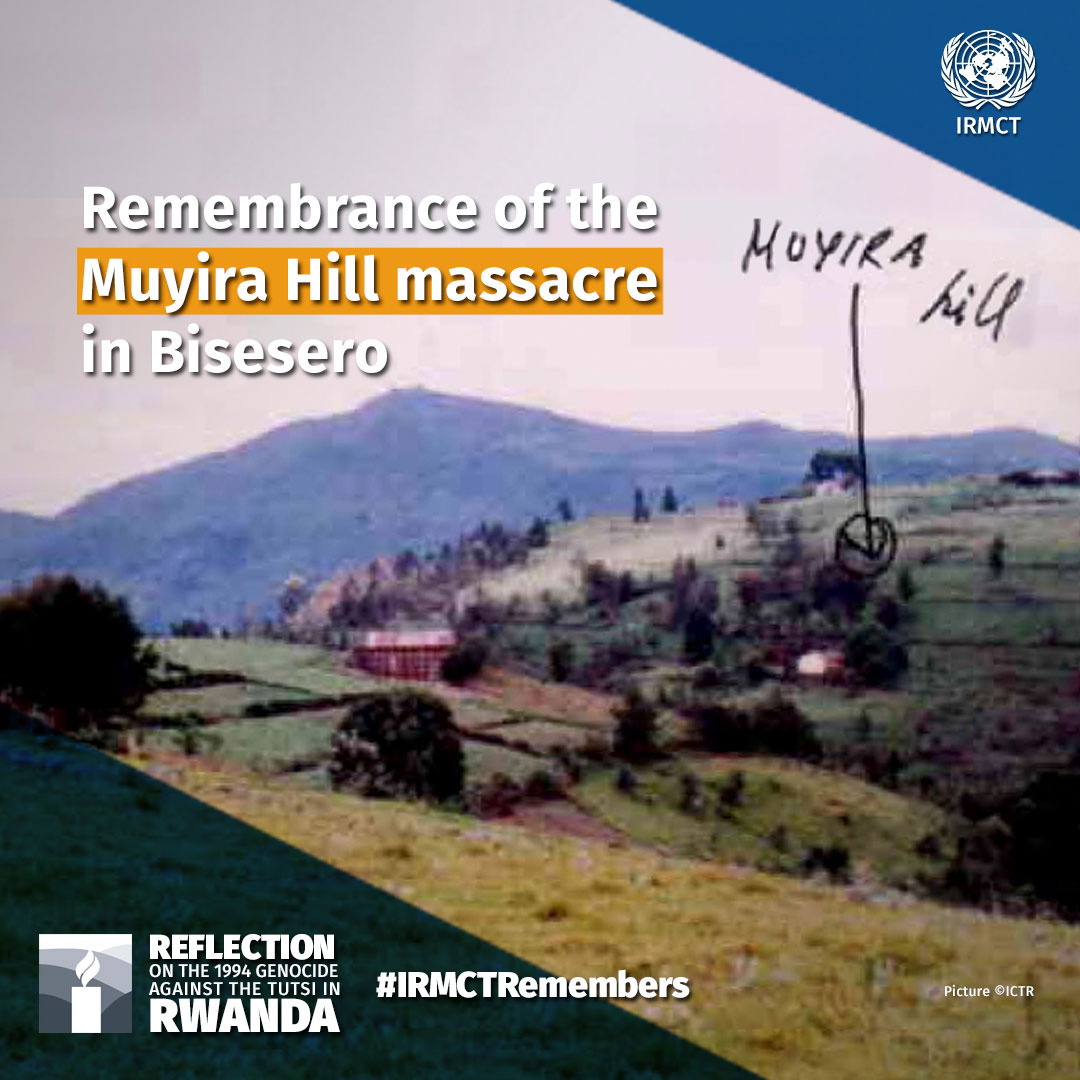
#IRMCT_Remembers 13 May 1994:
IRMCT remembers 13 May 1994 Muyira Hill massacre. The ICTR found that on this date, “a large-scale attack occurred on Muyira hill against up to 40 000 Tutsi refugees”.
#RwandaGenocide #Kwibuka26 -
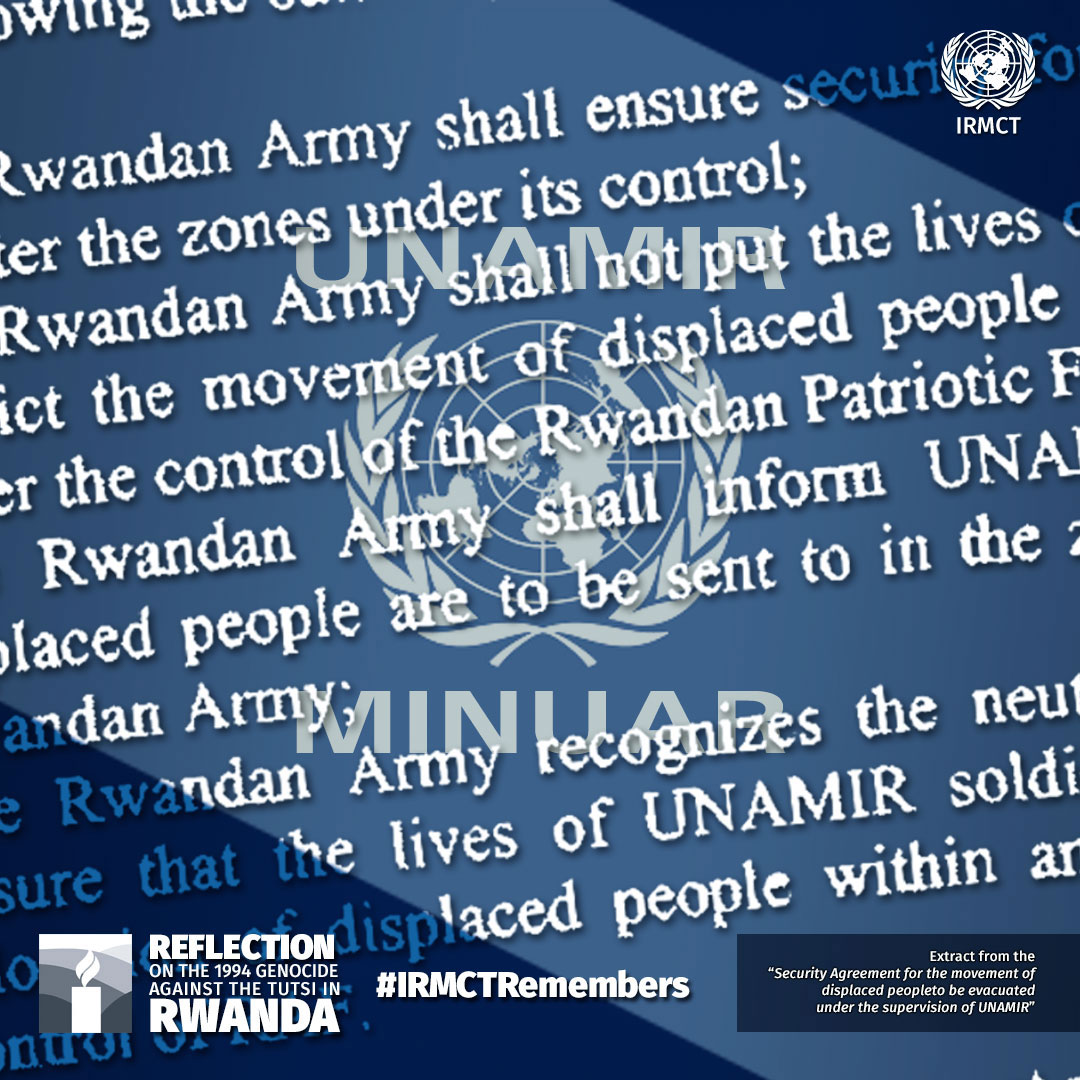
#IRMCT_Remembers 27 May 1994:
IRMCT remembers 27 May 1994, the date of the first extensive evacuation of displaced persons supervised by UNAMIR to assist those caught in the middle of the conflict
#RwandaGenocide #Kwibuka26 -
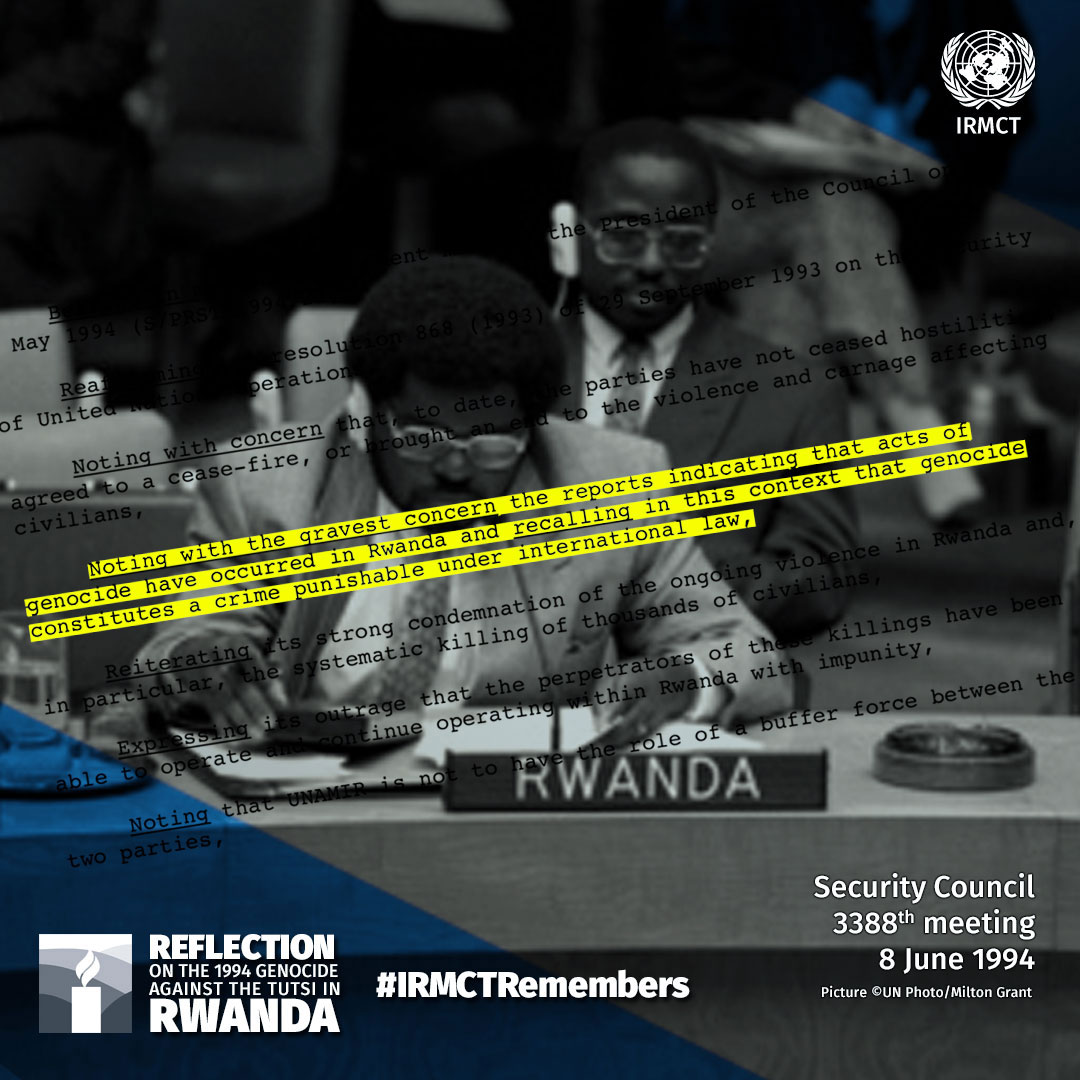
#IRMCT_Remembers 8 June 1994:
The UNSC adopted Resolution 925 noting with the gravest concern reports that acts of genocide occurred in Rwanda and that genocide constitutes a crime punishable under international law.
http://unscr.com/en/resolutions/925
#RwandaGenocide #Kwibuka26 -
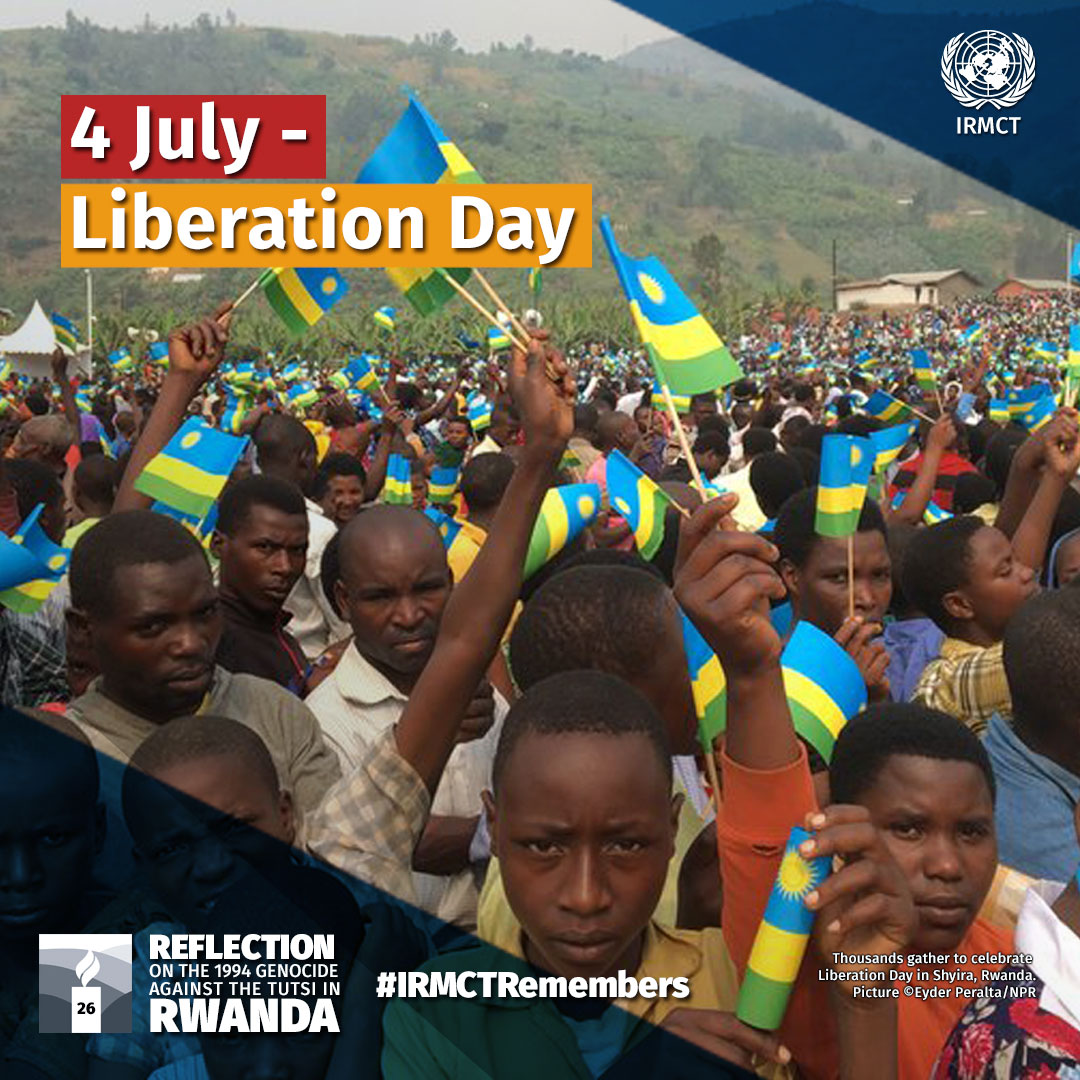
#IRMCT_Remembers 4 July 1994:
IRMCT remembers 4 July 1994, marking the end of the Genocide. It is on this date that Rwanda celebrates Liberation Day. The IRMCT joins the people of Rwanda in celebrating the end of the annual period of national mourning.
#RwandaGenocide #Kwibuka26

